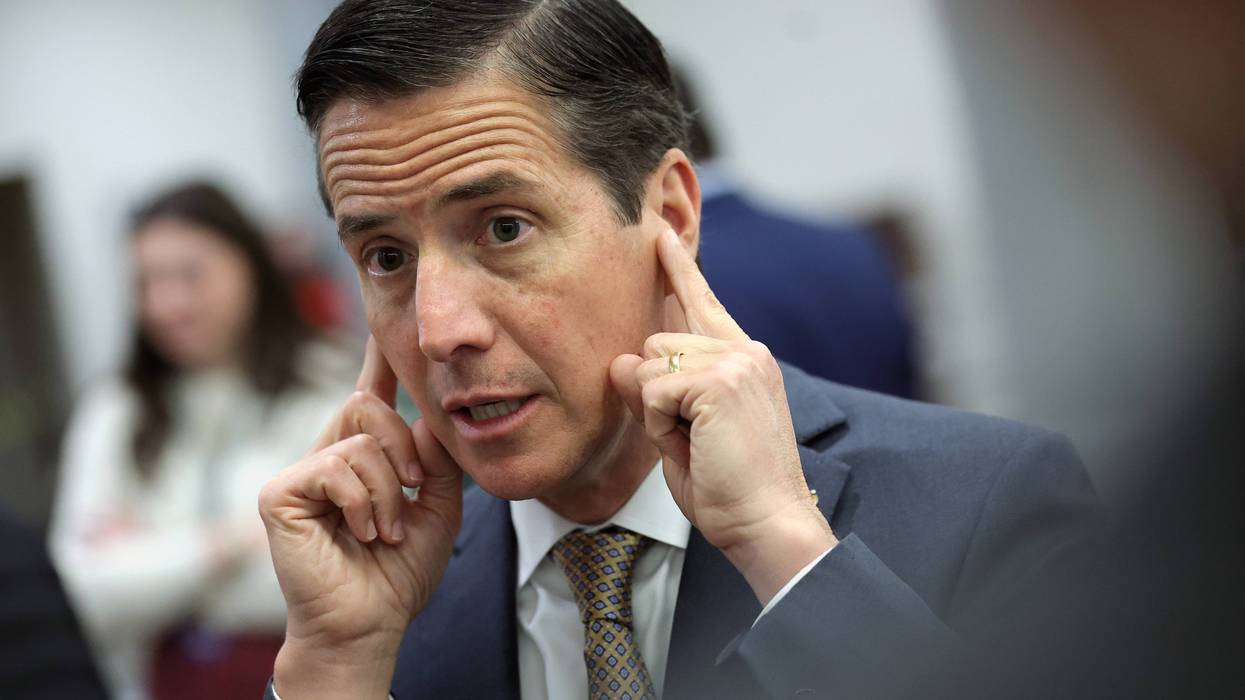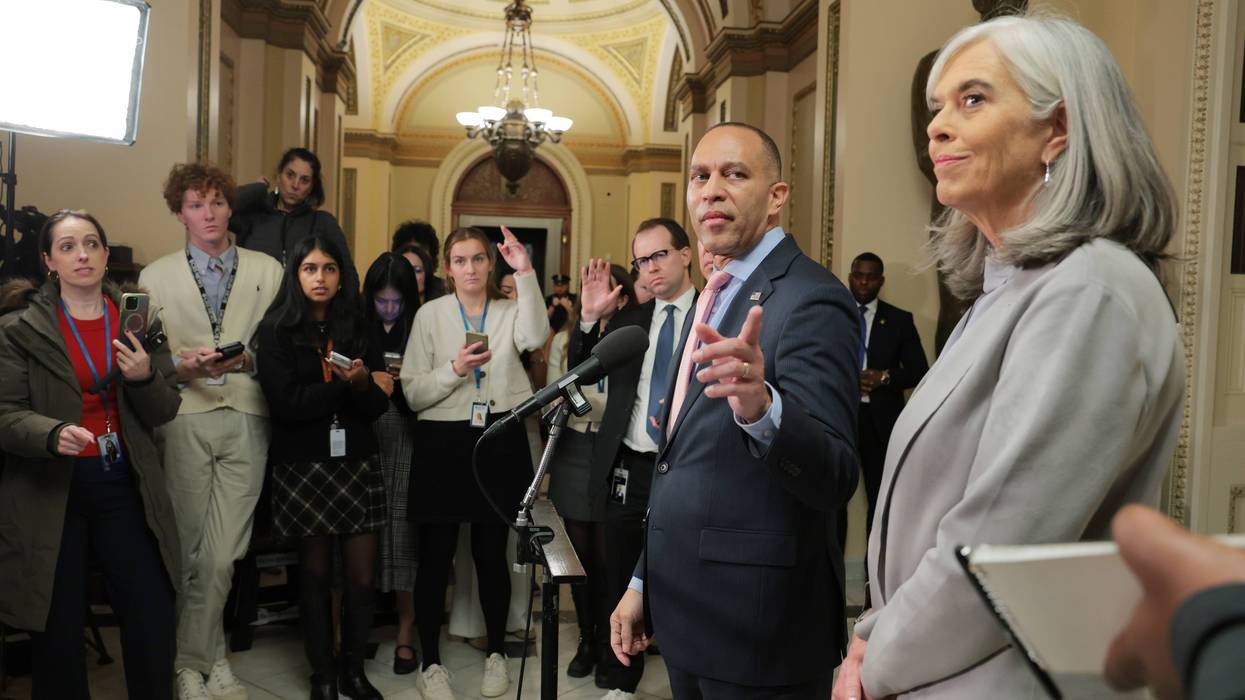Joining those four Republicans and all House Democrats on Thursday were GOP Reps. Mike Carey (Ohio), Monica De La Cruz (Texas), Andrew Garbarino (NY), Jeff Hurd (Colo.), David Joyce (Ohio), Thomas Kean Jr. (NJ), Nick LaLota (NY), Max Miller (Ohio), Zachary Nunn (Iowa), Maria Elvira Salazar (Fla.), David Valadao (Calif.), Derrick Van Orden (Wis.), and Rob Wittman (Va.).
"Despite Speaker Johnson's best efforts to block legislation to extend the ACA tax credits—Democratic leadership forced a vote and it passed!" declared Democratic Rep. Pramila Jayapal (Wash.). "The Senate must immediately follow our lead to lower costs for millions of Americans who are seeing their premiums skyrocket."
Senators also celebrated the development and called for a vote in their GOP-controlled chamber.
"Finally after we pushed this for a year!" said Sen. Amy Klobuchar (D-Minn.), noting that 17 House Republicans helped advance the bill. "The Senate must vote on it ASAP to lower costs for tens of millions of Americans."
Over 20 million Americans face soaring premiums because of the lapsed subsidies, and some people are forgoing health insurance coverage because of the new rates—which have surged alongside other rising costs tied to President Donald Trump's agenda.
"At a time when millions of Americans are being crushed under the weight of higher healthcare prices and cost-raising tariffs, this vote to bring back the healthcare tax credits is a testament to thousands of constituents nationwide who never let their members of Congress off the hook," said Unrig Our Economy campaign director Leor Tal.
"Now, we are taking this fight to the Senate," Tal continued. "Just like in the House, Senate Republicans have a choice—either stand with your constituents or vote to raise their healthcare costs exponentially. The answer should be clear."
While similarly welcoming the House passage, Democratic National Committee Chair Ken Martin also called out the majority of Republicans in the chamber who opposed the bill, arguing that they "have once again chosen to abandon working families."
"Millions of everyday Americans have already seen their healthcare premiums skyrocket, and what are Donald Trump and Republicans doing to help? Not a damn thing," Martin said. "They already gutted Medicaid while handing out massive tax cuts to billionaires—and now they see no problem with allowing costs to skyrocket even more. House Democrats fought tooth and nail to pass this bill, and now the Senate must come to the table and extend the tax credits—it's time to stop screwing around with Americans' healthcare."
As the Associated Press reported:
A small group of senators from both parties has been working on an alternative plan that could find support in both chambers and become law. Senate Majority Leader John Thune (R-SD) said that for any plan to find support in his chamber, it will need to have income limits to ensure that the financial aid is focused on those who most need the help. He and other Republicans also want to ensure that beneficiaries would have to at least pay a nominal amount for their coverage.
Finally, Thune said there would need to be some expansion of health savings accounts, which allow people to save money and withdraw it tax-free as long as the money is spent on qualified medical expenses.
Anthony Wright, executive director of the advocacy group Families USA, said Thursday that the House "discharge petition and vote put pressure on the president and the Republican congressional leadership to stop with the poison pills and procedural barriers and extend the enhanced tax credits so Americans can afford coverage."
"Millions of Americans began the new year facing staggering increases in their monthly health insurance premiums—in many cases seeing health costs double overnight," he noted. "This sudden spike, of more than $1,000 on average, is not just a shock—it's a breaking point. Without action, an estimated 4 million marketplace enrollees are expected to go uninsured, and many millions more will become underinsured, paying more and getting less."
"Today's vote represents a glimmer of hope for the 22 million Americans desperately trying to hold onto affordable health coverage for themselves and their families," he said. "Congress should not have needed a discharge petition to force a vote on something so overwhelmingly supported by the public and so essential to the health and financial security of American families. Every day we delay does further damage, so it's urgent for the Senate to stand with the 77% of voters who want to see a clean extension passed."
Wright also stressed that "with open enrollment ending in most states in just six days, families are being forced to make impossible choices in real time. Doing nothing is a choice to price out and push millions to lose coverage, rack up debt, and go without care. The Senate must now do its job and deliver the relief American families urgently need."
American Federation of State, County, and Municipal Employees (AFSCME) president Lee Saunders also took aim at the Senate on Thursday, saying that "the cost-of-living crisis is an unaffordable and unsustainable reality for millions of people, and it's getting worse."
"Thankfully, pro-worker lawmakers in the House voted today to restore the Affordable Care Act premium credits—a lifeline helping tens of millions of families afford healthcare," he said. "These tax credits also help keep costs lower for everyone else on health insurance—supporting them should be a no-brainer. We call on the Senate to act quickly and restore these tax credits. Working families are counting on them."




